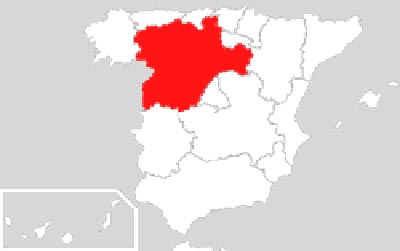A region of the central west of Spain. Castile was a kingdom of central and nothern Spain and provided Spain with its language, though it was originally a county of the former Kingdom of Léon. These two were united in 1230 and Aragon and Castile were later united by the marriage of Ferdinand II of Aragon and Isabella of Castile in 1469. The tableland region is dry and bare and suffers from droughts and hot winds, separated from the coast by Portugal. It is one of the few regions of Spain to have no local fish, though it can certainly be found. Instead it specialises in the production of wheat, from which exceptionally good bread is made, and in livestock, particularly pigs, and sheep. High quality chorizos are made from the pigs and the sheep provide milk for many cheeses. Castile is the land of the roast and the meaty stew. Rich red wines are produced. Madrid is the capital of Castile, which probably got its name from the number of castles that were built to defend the realm against the Moors. Don Quixote's windmills can still be found there. The cuisine of Léon, centred around the cultural centres of Salamanca and Valladolid, is known for the trout from the rivers and reservoirs of the region. The wooded mountains of the region provide game including chamois, venison and wild boar, while the pastures support beef and port, commony roasted.
